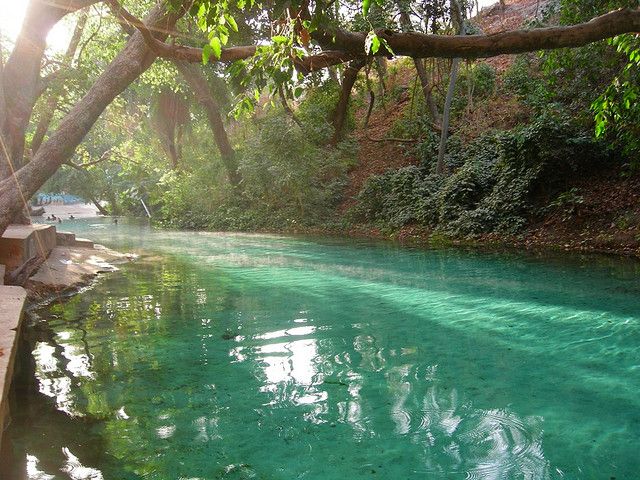Is it Possible to Travel to Nigeria By Road From The US?
The idea of embarking on a grand road trip from the USA to Nigeria might sound like an exciting adventure. However, the logistics and feasibility of such a journey require careful consideration. This comprehensive guide will explore the possibility of driving from the USA to Nigeria, and the challenges involved, and provide detailed answers to frequently asked questions to help you understand the reality of this ambitious endeavor.
Geographic and Logistical Overview
1. Geographic Distance
Driving from the USA to Nigeria involves traversing vast distances and multiple continents. The approximate distance from New York City, USA, to Lagos, Nigeria, is about 8,400 miles (13,518 kilometers). This route would take you through North America, across the Atlantic Ocean, and through several countries in Africa.
2. Continental Barriers
One of the main obstacles to driving directly from the USA to Nigeria is the Atlantic Ocean, which separates North America from Africa. This geographic barrier makes a continuous road trip impossible without utilizing maritime transportation.
3. International Borders
A journey from the USA to Nigeria would require crossing numerous international borders, each with its own entry and exit requirements, visa regulations, and security concerns. This adds a significant layer of complexity to the trip.
Feasibility of the Journey
1. Transatlantic Transportation
To drive to Nigeria from the USA, you would need to ship your vehicle across the Atlantic Ocean. This typically involves:
- Booking a Freight Service: Arranging for your vehicle to be transported by cargo ship from a port in the USA (e.g., New York, Baltimore) to a port in Africa (e.g., Lagos, Nigeria).
- Cost and Time: The cost of shipping a vehicle across the Atlantic can range from $1,000 to $5,000, depending on the size of the vehicle and the shipping method. Transit time can take several weeks.
2. Road Conditions and Infrastructure
Once in Africa, driving conditions vary significantly:
- North Africa: Countries like Morocco, Algeria, and Egypt have relatively well-developed road networks.
- Sub-Saharan Africa: Road conditions can be challenging, with less developed infrastructure, especially in remote areas.
3. Safety and Security
Traveling through certain regions, particularly in West Africa, can pose security risks due to political instability, crime, and potential conflicts. It is crucial to stay informed about current conditions and travel advisories issued by government agencies.
Alternative Options
Given the complexities and challenges of driving from the USA to Nigeria, alternative travel options are more practical:
1. Flying
The most straightforward and efficient way to travel from the USA to Nigeria is by air. Numerous airlines offer direct and connecting flights between major cities in the USA and Nigeria.
2. Combining Modes of Transport
If you are set on incorporating driving into your journey, consider a hybrid approach:
- Fly to a European or North African Country: Fly to a country like Morocco or Spain.
- Drive from There to Nigeria: Drive from Morocco or Spain through various African countries to Nigeria. This still involves significant planning and logistical coordination but is more feasible than crossing the Atlantic by car.
Frequently Asked Questions (FAQs)

Q1: Is it possible to drive from the USA to Nigeria?
A: While it is theoretically possible by shipping your car across the Atlantic Ocean and then driving through various African countries, the logistical, financial, and safety challenges make it impractical for most travelers.
Q2: How much does it cost to ship a car from the USA to Nigeria?
A: The cost of shipping a car from the USA to Nigeria typically ranges from $1,000 to $5,000, depending on factors like the size of the vehicle, shipping method, and specific shipping route.
Q3: How long does it take to ship a car from the USA to Nigeria?
A: Shipping a car across the Atlantic Ocean can take several weeks, depending on the shipping company, route, and any potential delays.
Q4: What are the main challenges of driving in Africa?
A: The main challenges include varying road conditions, underdeveloped infrastructure in some regions, security risks, and navigating different countries’ legal and visa requirements.
Q5: What are the visa requirements for driving through multiple countries to Nigeria?
A: Visa requirements vary by country. Travelers need to research and obtain the necessary visas for each country they plan to drive through, which can be time-consuming and complicated.
Q6: Is it safe to drive through Africa to Nigeria?
A: Safety varies significantly by region. Some areas are relatively safe for travelers, while others pose significant risks due to political instability, crime, and conflicts. It is essential to stay updated on travel advisories and local conditions.
Q7: Can I rent a car to drive from a North African country to Nigeria?
A: Renting a car for such a long-distance journey across multiple countries can be difficult. Rental agreements often restrict cross-border travel, and finding a rental company willing to allow this may be challenging.
Q8: What should I do to prepare for driving in Africa?
A: Preparation includes securing necessary visas, ensuring your vehicle is suitable for long-distance travel, carrying essential supplies, and familiarizing yourself with local driving laws and customs. Additionally, having a comprehensive travel insurance policy that includes vehicle coverage is advisable.
Conclusion
While the idea of driving from the USA to Nigeria is adventurous and intriguing, the practical challenges make it an unrealistic option for most travelers. The significant geographical barriers, complex logistics, and varying safety conditions pose substantial hurdles. Instead, flying directly or combining air travel with regional driving offers a more feasible and safer alternative for those looking to explore Nigeria.
For the adventurous at heart, extensive research, thorough planning, and a clear understanding of the risks and requirements are crucial. Whether you choose to fly, drive, or combine both modes of transport, Nigeria offers a wealth of cultural, historical, and natural attractions that make the journey worthwhile. Safe travels!
